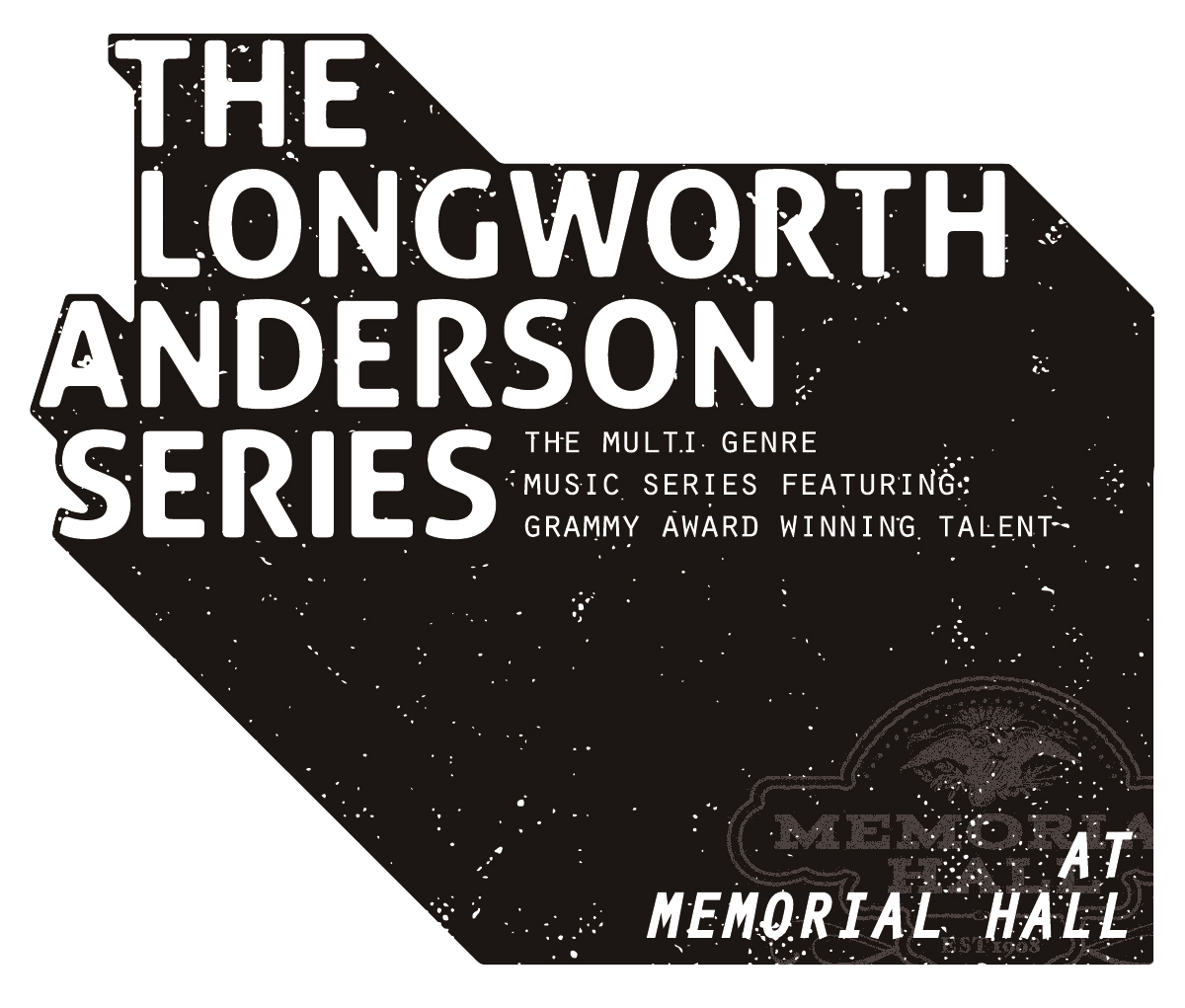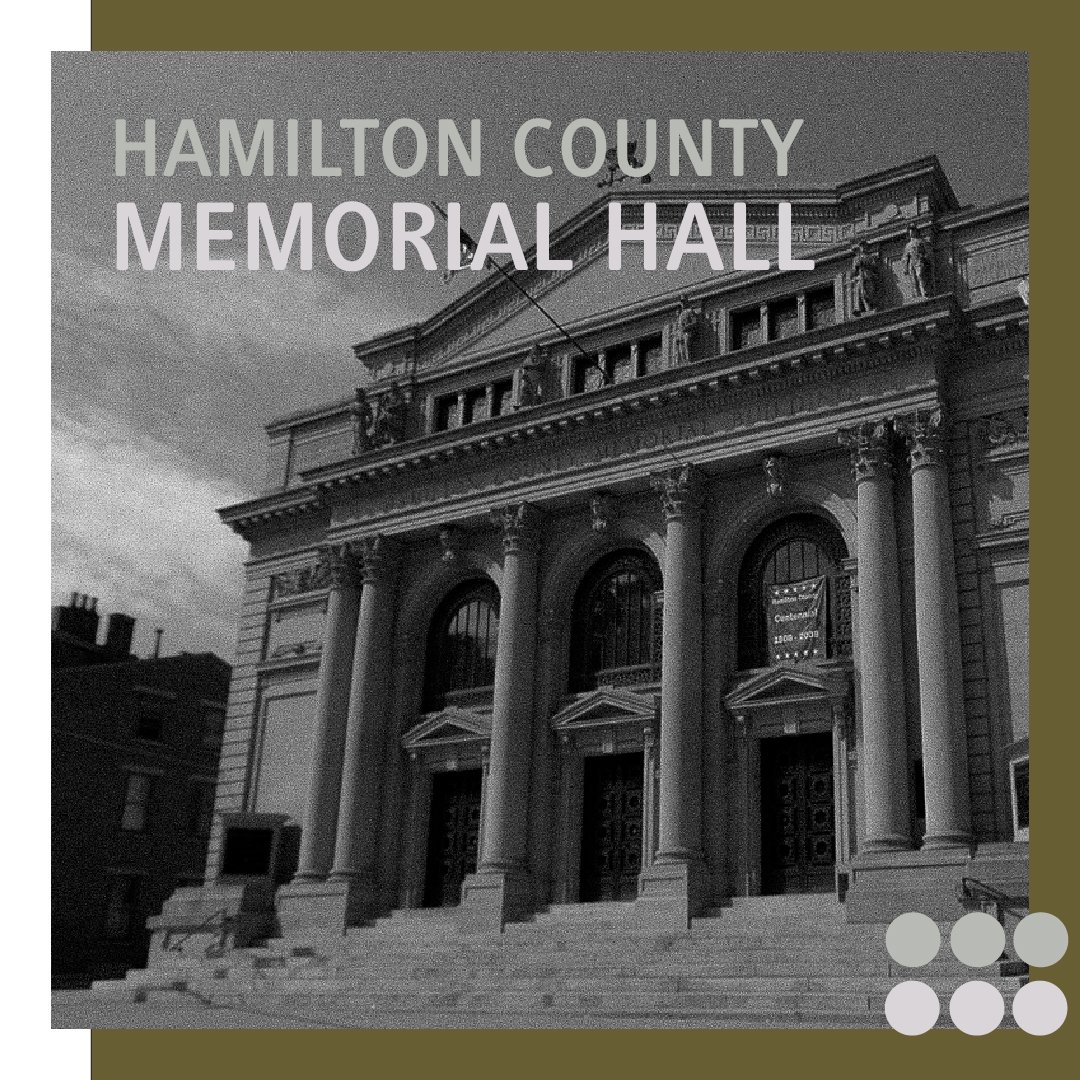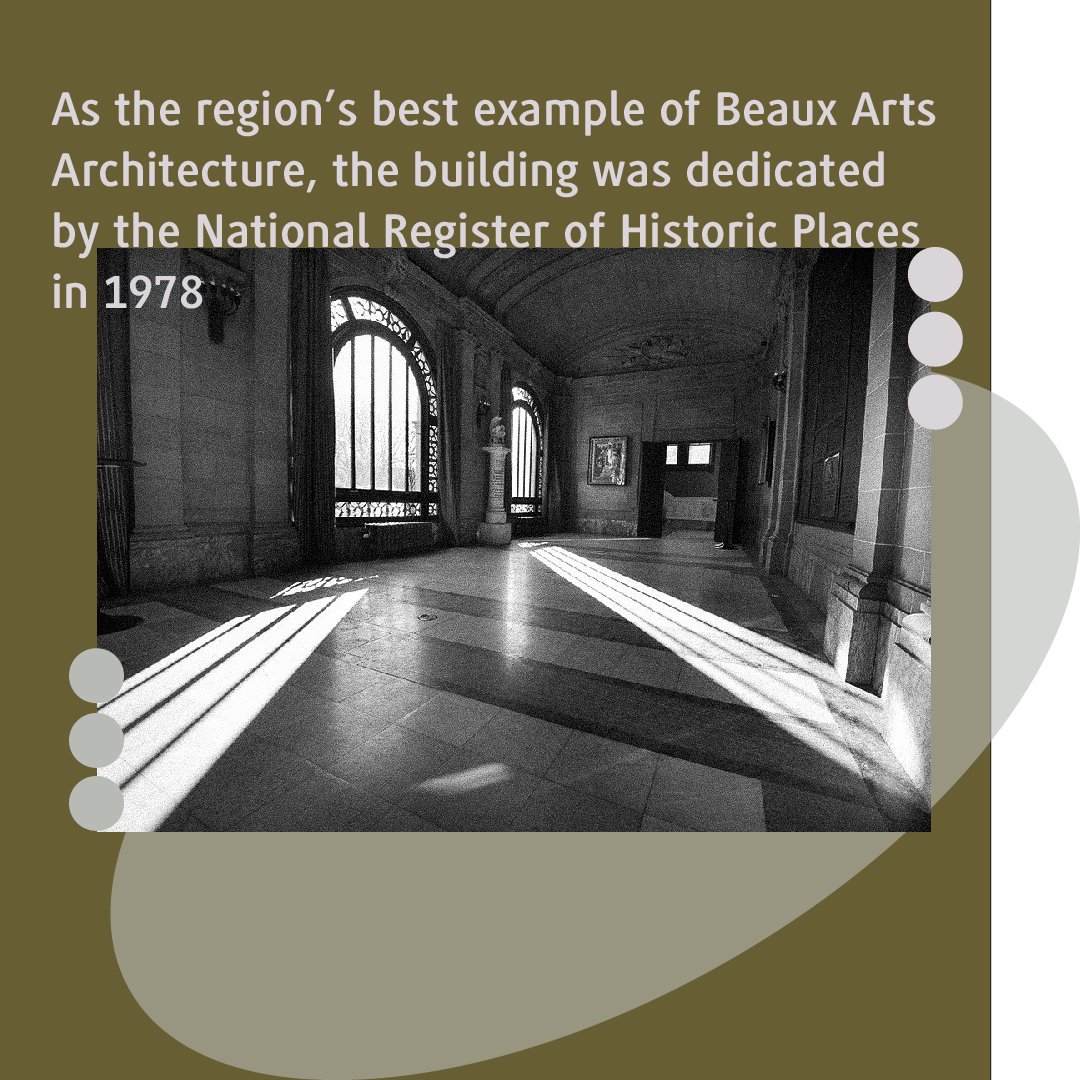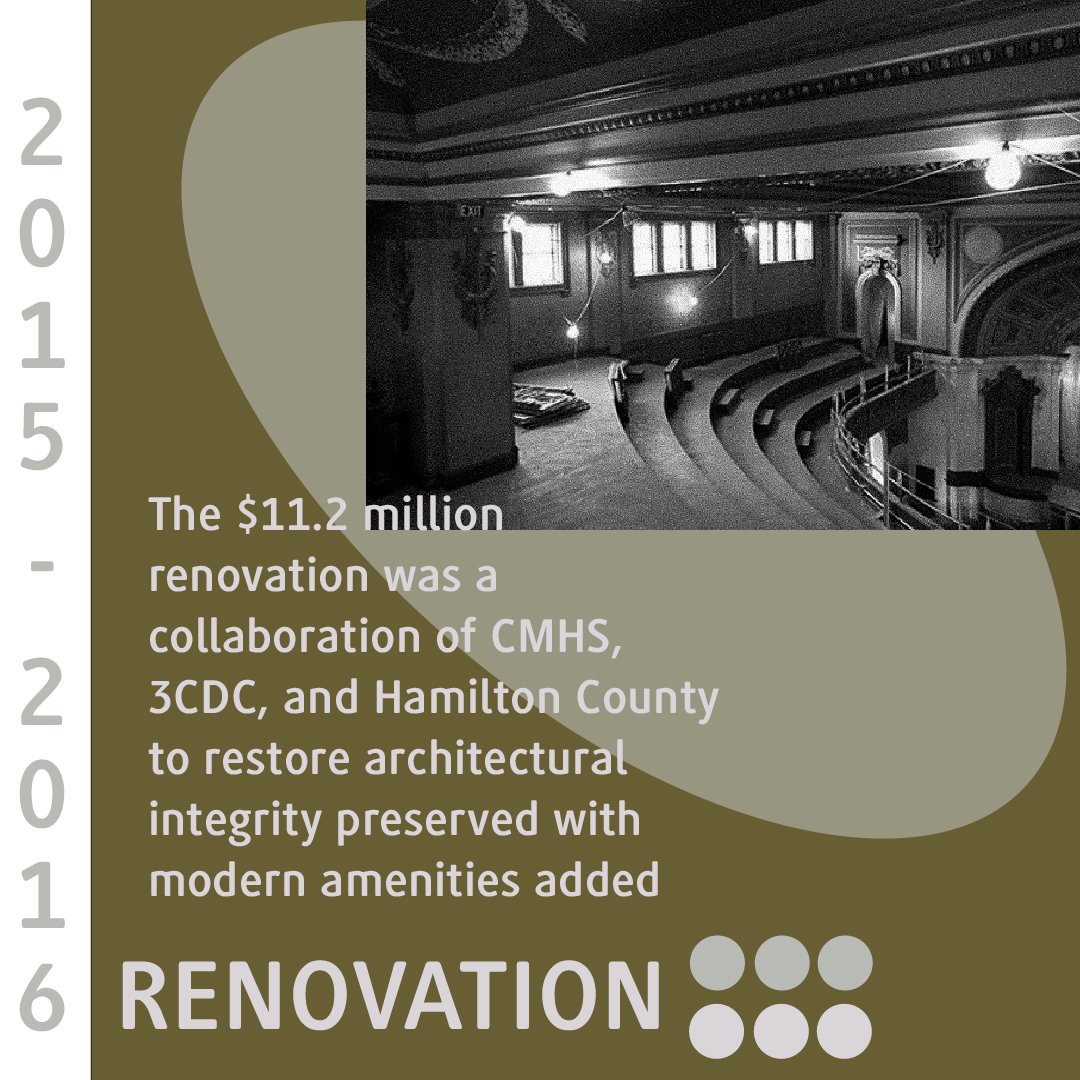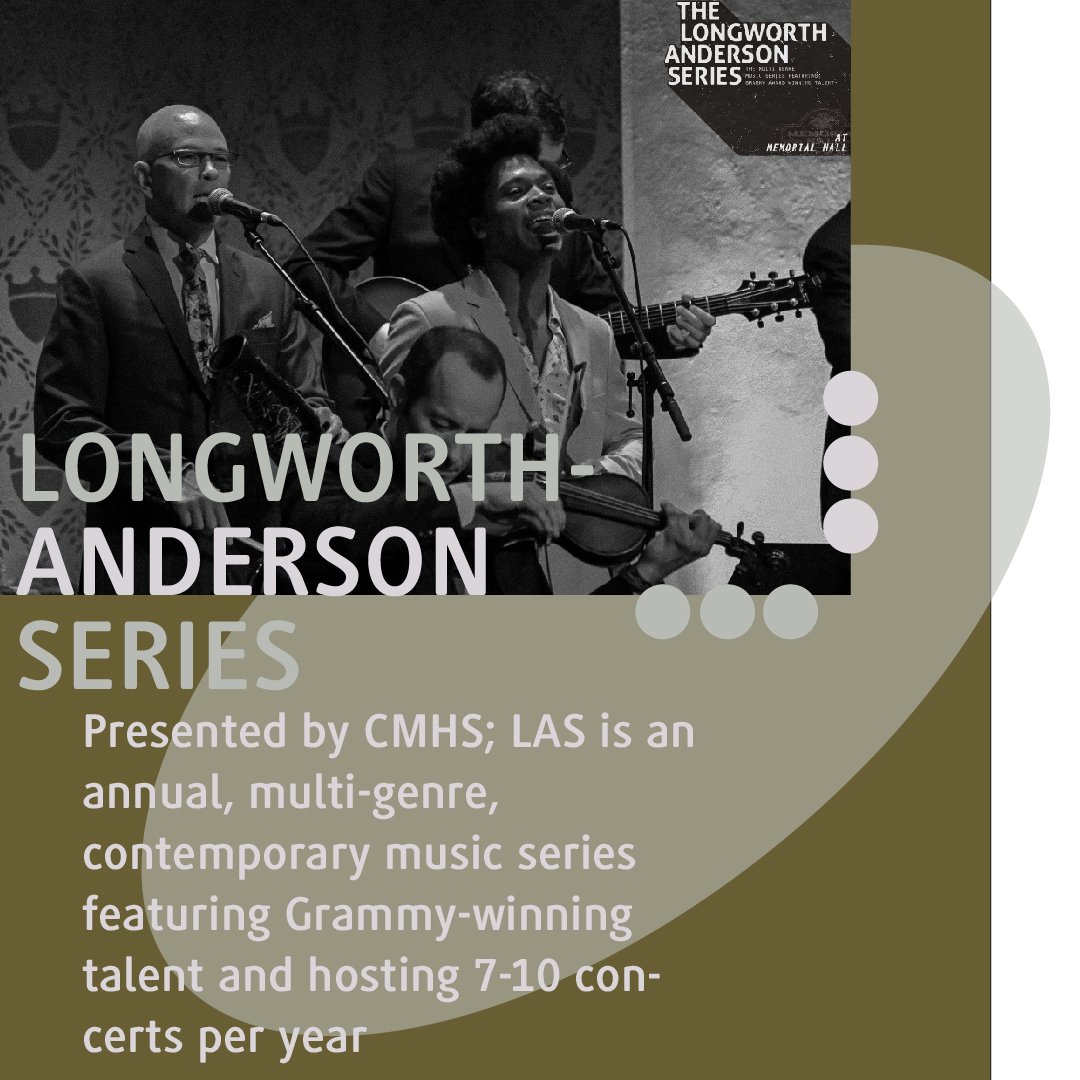In 1908, The Grand Army of the Republic constructed Hamilton County Memorial Hall as a monument to veterans of the Spanish-American War and Civil War.
Designed by Samuel Hannaford & Sons (who had an extensive resume of designs in Cincinnati, including Music Hall, City Hall, several churches, and other prominent buildings), the hall features marble staircases embellished with intricate wrought iron that lead to the 556-seat proscenium theater. This theater was originally conceived for speeches, but evolved into one of most intimate and acoustically superior venues in the region.
A local sculptor named Clement Barnhorn carved six figures above the exterior doors, each wearing a military uniform representing soldiers from the Revolutionary War to the Spanish-American War.
Memorial Hall also houses a special collection of artwork and artifacts of local civic and military history. More than 40 pieces are on display throughout the building, including the wreath that is said to have adorned Abraham Lincoln's casket when it passed through Columbus, OH. Beautiful murals and Tiffany chandeliers complement the historic theater, along with stenciled murals by Francis Pedretti.
After World War I, Disabled American Veterans was created at Memorial Hall during the organization’s first national caucus. The charity grew to encompass more than a million members with chapters all over the country.
Today, Memorial Hall is located in the heart of a revitalized arts district in Over-the-Rhine. Listed on the National Register of Historic Places in 1978, the venue overlooks Washington Park, and is neighbor to Music Hall, The Transept, the School for Creative and Performing Arts, and Cincinnati Shakespeare Company.
In 2016, a $11.2 million renovation was completed, a collaboration of the Cincinnati Memorial Hall Society (CMHS), the Cincinnati Center City Development Corporation (3CDC), and Hamilton County. The renovation allowed for the preservation of the building’s historic character. Additionally, extensive improvements were made to increase audience and performer comfort, modernize amenities, and enhance concerts. The renovations included new, larger restroom facilities, a new HVAC system to accommodate year-round events, new seating, the addition of a contemporary catering kitchen, and backstage crossover space for performers. Memorial Hall is now managed by 3CDC, hosting more than 250 events annually.
When the theater reopened, it was named the Annie W. and Elizabeth M. Anderson Theater, in recognition of the prominence of the Anderson and Longworth families in Cincinnati’s history, and the Anderson sisters’ generous contribution to the renovation. Annie and Elizabeth Anderson were sixth-generation Cincinnatians, great-granddaughters of Nicholas Longworth (1783-1863) and Lt. Colonel Richard Clough Anderson (1750-1826).
Brevet Major General Nicholas Longworth Anderson (1838-1892) was Anne and Elizabeth’s great-uncle, and an honored Civil War veteran memorialized by a bronze plaque placed in Memorial Hall following the building’s construction.
With the completion of the renovation, the Longworth-Anderson Series was launched in early 2017 by CMHS. The series features Grammy Award-winning and other nationally recognized performers and bands, showcasing a variety of contemporary music genres including alternative, Americana, bluegrass, blues, country, folk, gospel, hip hop, jazz, pop, R&B, reggae, rock, soul, and world music. Events that are part of the series provide an entire evening of entertainment including pre-concert receptions with live local music, light bites, and beer & wine tastings from popular regional restaurants, craft beer brewers, and wine distributors.
—Scott Seward
